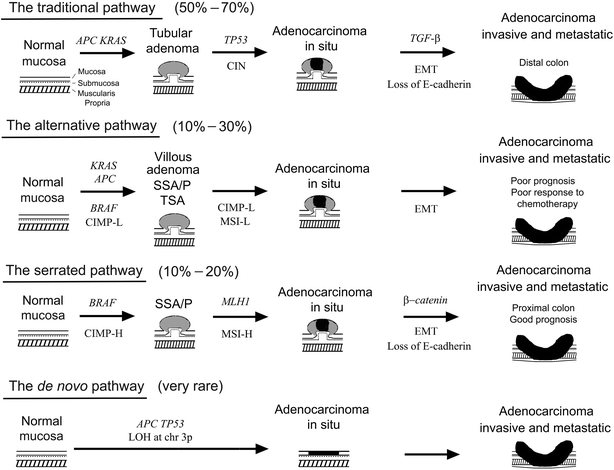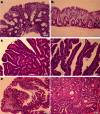Molecular pathogenesis of sporadic colorectal cancers
- PMID: 26738600
- PMCID: PMC4704376
- DOI: 10.1186/s40880-015-0066-y
Molecular pathogenesis of sporadic colorectal cancers
Abstract
Colorectal cancer (CRC) results from the progressive accumulation of genetic and epigenetic alterations that lead to the transformation of normal colonic mucosa to adenocarcinoma. Approximately 75% of CRCs are sporadic and occur in people without genetic predisposition or family history of CRC. During the past two decades, sporadic CRCs were classified into three major groups according to frequently altered/mutated genes. These genes have been identified by linkage analyses of cancer-prone families and by individual mutation analyses of candidate genes selected on the basis of functional data. In the first half of this review, we describe the genetic pathways of sporadic CRCs and their clinicopathologic features. Recently, large-scale genome analyses have detected many infrequently mutated genes as well as a small number of frequently mutated genes. These infrequently mutated genes are likely described in a limited number of pathways. Gene-oriented models of CRC progression are being replaced by pathway-oriented models. In the second half of this review, we summarize the present knowledge of this research field and discuss its prospects.
Figures


References
-
- World Cancer Research Fund/American Institute for Cancer Research . Food, nutrition, physical activity, and the prevention of cancer: a global perspective. Washington, DC: AICR; 2007. pp. 280–288.
Publication types
MeSH terms
LinkOut - more resources
Full Text Sources
Other Literature Sources
Medical
Miscellaneous

